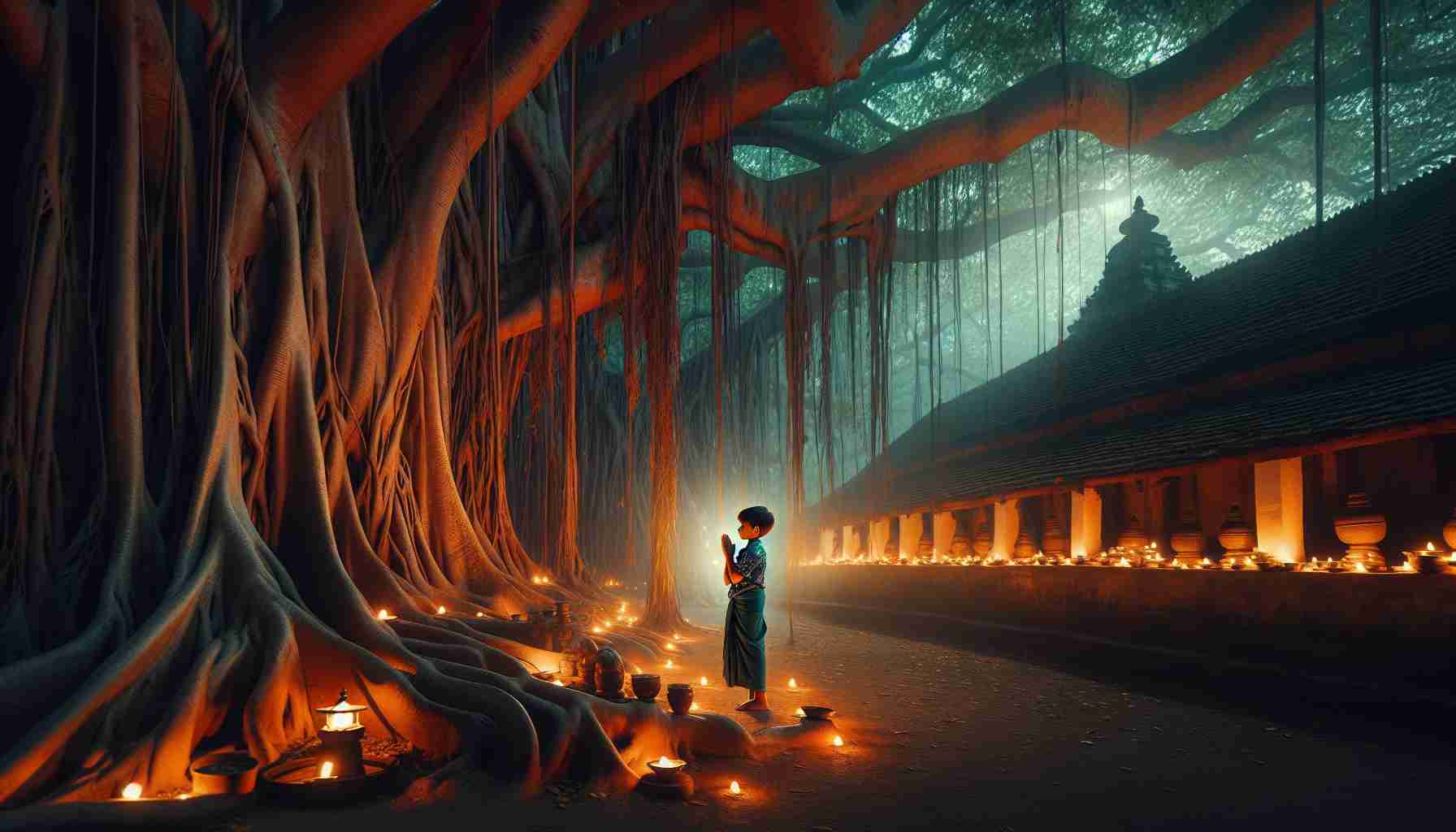

I was just thirteen when my father stopped speaking much.
He still woke before the sun to start the incense in our tiny shrine room. Still cleaned the altar, dressed the little brass figure of Vishnu—protector of the universe—in fresh yellow cloth. But the long stories he used to tell me, about Rama’s forest exile and Krishna’s childhood mischiefs, faded into silence.
I didn’t know why.
Only that his smile had grown smaller since Ma had died two monsoons before. And I had grown quieter too, trying not to ask for much, to trouble him as little as possible.
One morning, on my way back from school, I stopped by the temple of Durga just past the rice fields. I had no coin to offer and no real prayer in mind—only a strange ache inside me I couldn’t name. I stood by the outer wall, pretending to tie my shoelace. I didn’t want the priest to ask what I wanted.
I felt so invisible those days.
I wasn’t particularly smart. Not especially beautiful. A few girls in class teased me for never knowing the answers. Nobody really listened when I spoke. Even at home, my words floated in the silence between father and me.
I knelt quietly near the temple’s banyan tree. My knees pressed into the dirt. I touched my forehead to the ground—a pranam, a respectful bow—and something in me cracked. I didn’t cry. Not then. But I whispered, “Do you even see me?”
Birds stirred in the branches above. The bell from inside rang, long and clear. A strange stillness flowed over me—like I was being held in the gaze of something ancient and kind.
I remembered a verse my teacher once read from the Bhagavad Gita: “I am the same to all beings. None are hateful to Me, none dear.” (Gita 9.29).
For some reason, that line pierced me. If Vishnu—the protector, the sustainer—saw all beings the same… maybe He saw me too. Not because I was special. But because no soul was unseen.
I walked home a little slower that day. I watched the light fall through the coconut trees, how each leaf caught the sun in its own way. Nothing seemed ignored by the world. Maybe I wasn’t either.
That night, while helping Father light the lamp, I said, “Appa, do you think Ma still sees us?”
He looked up, startled, and I saw his eyes shimmer. He nodded. Then, just above a whisper, he replied, “And so does He.”
He didn’t have to say who. I understood.
The Upanishads say, “He is closer than the closest, farther than the farthest” (Isha Upanishad, verse 5). That night, I believed it. Not with my mind. But from the place in me I had once thought the world didn’t see.
And for the first time in years, I felt... held.
I was just thirteen when my father stopped speaking much.
He still woke before the sun to start the incense in our tiny shrine room. Still cleaned the altar, dressed the little brass figure of Vishnu—protector of the universe—in fresh yellow cloth. But the long stories he used to tell me, about Rama’s forest exile and Krishna’s childhood mischiefs, faded into silence.
I didn’t know why.
Only that his smile had grown smaller since Ma had died two monsoons before. And I had grown quieter too, trying not to ask for much, to trouble him as little as possible.
One morning, on my way back from school, I stopped by the temple of Durga just past the rice fields. I had no coin to offer and no real prayer in mind—only a strange ache inside me I couldn’t name. I stood by the outer wall, pretending to tie my shoelace. I didn’t want the priest to ask what I wanted.
I felt so invisible those days.
I wasn’t particularly smart. Not especially beautiful. A few girls in class teased me for never knowing the answers. Nobody really listened when I spoke. Even at home, my words floated in the silence between father and me.
I knelt quietly near the temple’s banyan tree. My knees pressed into the dirt. I touched my forehead to the ground—a pranam, a respectful bow—and something in me cracked. I didn’t cry. Not then. But I whispered, “Do you even see me?”
Birds stirred in the branches above. The bell from inside rang, long and clear. A strange stillness flowed over me—like I was being held in the gaze of something ancient and kind.
I remembered a verse my teacher once read from the Bhagavad Gita: “I am the same to all beings. None are hateful to Me, none dear.” (Gita 9.29).
For some reason, that line pierced me. If Vishnu—the protector, the sustainer—saw all beings the same… maybe He saw me too. Not because I was special. But because no soul was unseen.
I walked home a little slower that day. I watched the light fall through the coconut trees, how each leaf caught the sun in its own way. Nothing seemed ignored by the world. Maybe I wasn’t either.
That night, while helping Father light the lamp, I said, “Appa, do you think Ma still sees us?”
He looked up, startled, and I saw his eyes shimmer. He nodded. Then, just above a whisper, he replied, “And so does He.”
He didn’t have to say who. I understood.
The Upanishads say, “He is closer than the closest, farther than the farthest” (Isha Upanishad, verse 5). That night, I believed it. Not with my mind. But from the place in me I had once thought the world didn’t see.
And for the first time in years, I felt... held.